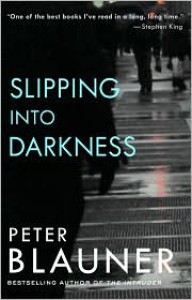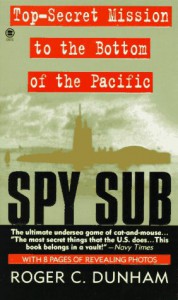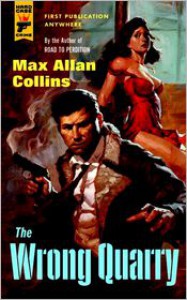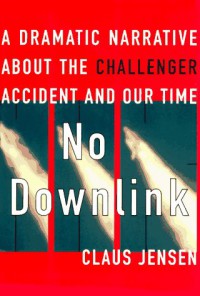
Mark Gitenstein was Chief Counsel to the Senate Judiciary Committee, chaired by Senator Joseph Biden, during the Bork nomination hearings. Bork had been nominated to replace Justice Powell on the Supreme Court. Gitenstein has written an insiders account of the process in Matters of Principle.
The battle between Democrats and Republicans remains an ideological conflict. Both sides had very different judicial philosophies. Judge Bork argued for a very narrow interpretation of the Constitution; that rights not specifically enumerated in the Constitution could not be protected by the federal government. His opponents argued that Bork ignored the ninth amendment that retained rights in the people even if they were not specifically spelled out and that the court had an obligation to protect those rights. (See The Tempting of America by Robert Bork for a very concise explanation of Bork’s judicial philosophy). Thus, according to Bork, if the Constitution did not categorically state that you could educate your children, you could be denied the right to educate them at home or send them to private school; that because segregation or integration were not mentioned by the framers, segregation was a legitimate form of social structure for states to adopt; and because no generalized right to privacy was articulated, states could prohibit the sale of contraceptive devices or permit wholesale abortion if they desired.
This opposition to Griswold v. Connecticut is interesting because it reflected a complete about-face. In 1963, articulating his libertarian stance, Bork had argued that Griswold reflected a generalized right to privacy even though it was not specifically declared in the Constitution. By 1971 his position had completely reversed. This position switching was not unusual. After all Bork had begun as a Socialist and as a young man had even handed out Communist leaflets. This was an outgrowth of his poor background. After college, however, he decided the way to way was strictly through a free market approach and from there he adopted the libertarian stance, radically arguing against the civil rights movement and legislation as an infringement on a white man’s right to sit next to whom ever he wanted, a denial of his right of association.
By 1971 he was unalterably opposed to one-man-one vote decisions and court decisions that struck down legislation forbidding the establishment of private schools. By 1937 he was describing himself as a “Burkean” and was irritating his friends on the right by suggesting that a balanced budget amendment was foolish and silly. He was particularly enrage by “intellectuals” (although a major reason for his escape from a Washington law firm to Yale University in the fifties was his desire for a more intellectually stimulating environment.) By Burkean he meant opposition to “broad sweeping abstract principles as a way of organizing society, because they tend to be highly coercive; respect for community, tradition, constitutional structure; a willingness to look at a law and ask ‘will it do more good than harm.”’
So Bork had made the journey from “Socialist to Communist to New Dealer, to free-market advocate, to libertarian, to strict constructionist, to statist, to Burkean.” His mentor Alexander Bickel (The Least Dangerous Branch is on my TBR list) who had also moved from liberalism to Burke counseled to always push himself and never to cower in public debate, nor fear unpopular positions. That was were he was at the time of the nomination hearings. He was also a prolific writer who enjoyed provoking, as most of the writings were originally speeches that were intended to provoke. Those provocations made it difficult for the White House which was trying to portray him as a moderate replacement for the middle-of-the-road Powell.
Bork’s nomination was a response to Reagan’s failure to achieve adoption of his social agenda. Patrick Buchanan, Reagan’s communications director had argued, “The appointment of two justices to the Supreme Court could do more to advance the social agenda — school prayer, anti-pornography, anti-busing, right-to-life and [ending] quotas in employment — than anything Congress can accomplish in twenty years.”
This use of the judiciary to achieve political ends was not new. Andrew Jackson and Franklin Roosevelt had personally orchestrated campaigns to change the philosophical nature of the court. The Senate has always considered it to be its prerogative to thwart such ventures.
In the end, Borks’s extremest positions on numerous issues, obvious from a trail of documents, made it impossible for the White House strategy to portray him as a moderate. They lost the support of the moderates and southern Democrats whose votes they needed for confirmation. Ironically, though, a major reason for Bork’s defeat was less his judicial philosophy than the failure of the Reagan administration to publicly support its nominee. Bork had pleaded with White House staff to have the president issue a speech on his behalf; but Reagan never left the sidelines.
Bork’s position - that no set of values was supreme (“there is no principled was to prefer any claimed human value to any other”) is a startling proposition coming from a self-proclaimed conservative and the author ofSlouching for Gomorrah for it means courts would be prohibited from enforcing the values they wanted adopted. This logically led him to the conclusion that courts can only enforce contracts, the Constitution being merely another contract that must be read literally. The judge must not choose between a competing set of values, but must return to the document for a literal reading much like a will.
Perhaps ironically, Thomas Grey of Stanford has pointed out in 1975 that “Bork’s views and those of New Deal liberal Hugo Black were similar in that ‘constitutional doctrines based on sources other than the explicit commands of the written constitution were illegitimate.’” Black has also used a Burkian approach to argue against the Supreme Court’s imposition of arbitrary values and creation of “right” that prevented New Deal legislation. This conservative Supreme Court argued that an employee had a “right to work” for as little per hour as he wanted. Bork has recently stated that the Supreme Court's activism began with this early twentieth century court; that it wrote all sorts of free market “nonsense” into the Constitution. So Bork has argued he was simply using the liberal’s criticisms of an earlier court when he decried the Warren court’s activism. That earlier court had also laid down much precedent for the development of privacy and individual rights, however; a trend that Black noted and Bork has perhaps ignored. In Pierce v Society of Sisters (1925), a decision that Bork has called “intellectually empty,” the court struck down a law that would have prohibited home schooling
Bork contended the 9th amendment, often used to define rights not specifically enumerated in the Constitution, is essentially meaningless, yet therein lies the most important core of original intent of the Framers.
 3
3

 1
1

























